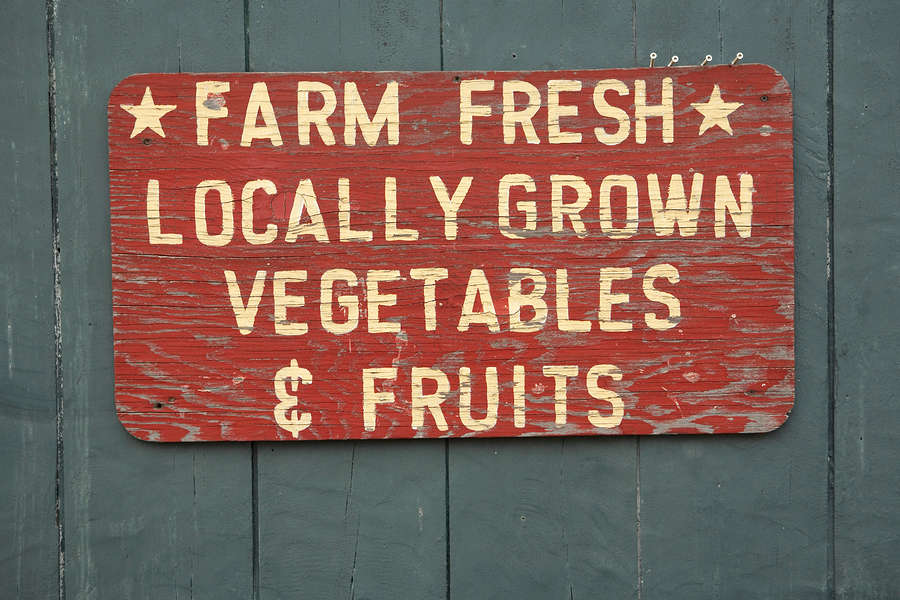If you haven’t been to one, a farmers market is a great place to find locally grown food and locally made products. Most have a regular gathering of local farmers or vendors selling the food that they have produced themselves, directly to the public. In most places around the country, farmers markets have become very popular recently. Because of the open-air nature of these farmers markets, many are only open during the warmer months, though some markets are expanding their seasons. Some are even going to year round with things like eggs, dairy, bread and other products that are readily available and not season dependent.
Shopping at your local farmers market makes for an enjoyable day to browse and see the many different items available to you by the people in your area. If you have not already visited your local farmers market you might be in for a surprise. Many people only think of produce when thinking of farmers markets, but there can be many other things that you can find. Home-canned items, specialty coffees, organic seasonings, fresh herbs, bakery goods and fresh honey, just to name a few.
Having access to fresh, locally grown food is great resource. Most of our food takes seven to fourteen days between the time produce is picked and when it becomes available at a supermarket. Within that time, fruits and vegetables travel, on average, more than 1,200 miles before reaching the final consumer. Some farmers markets will put a mileage limit requirement on the produce sold.
According to a survey conducted by Farmers Markets Today magazine more than 85% of farmers market vendors traveled fewer than 50 miles to sell at a farmers market in 2008. In fact, more than half of farmers traveled less than 10 miles to their market, according to a 2006 USDA survey. Studies have shown that produce loses taste and nutritional value as more time passes from the time of harvest. The locally grown produce available at farmers markets is available to you at the peak of freshness and nutrient availability.
Not only is this a great place to find naturally grown foods but also allows you to support some of your local smaller family farms. If you have any questions, you can speak to the person who grew the food you will be eating, not a store employee. Farmers are there to answer your questions or give suggestions in cooking, growing, etc. The money you spend at these markets go to the person who grew or made the products in front of you.
This keeps your money in circulation within your local community, preserving and creating local jobs. A 2010 study of the Easton Farmers Market in Pennsylvania, for example, found that 70% of farmers market customers are also shopping at downtown businesses, spending up to an extra $26,000 each week. This is very different from major grocery stores where a large percentage of sales leave the community, and possibly even the state.
Know that not all foods at farmers markets are organic, but many are. If you choose solely to look for organic, so make sure to ask the grower, or find organic only markets.
For the prepper, farmers markets offers opportunity to get to know the people in your community, and find opportunities for trade and barter.
Here are some resources for finding farmers markets in your area. See what markets are available in your area and go take a visit. You might enjoy all the little extras that they provide!
LocalHarvest.org has a searchable database of farmers’ markets, family farms and other sources of sustainably grown food, which offer produce, grassfed meats and other foods.
The U.S. Department of Agriculture also has a thorough collection of U.S. farmers’ markets. Search for farmers’ markets in your area by state and city.
Eat Well Guide is a free online directory for anyone in search of fresh, locally grown and sustainably produced food in the United States and Canada.
This tip was brought to you by the Preparedness Podcast and was written by Rob Hanus. Feel free to share it with your friends and family.
Rob Hanus is the author of the book “The Preparedness Capability Checklist” which is an easy-to-read-and-follow guide that is full of the most efficient methods for intelligent and deliberate prepping. Rob is also host of the Preparedness Podcast.
You can get the Rob’s book here:
http://www.thepreparednesspodcast.com/capability-checklist/
Tune into Rob’s podcast here:
http://www.thepreparednesspodcast.com/preparedness-podcast/
Marjory Wildcraft is an Expedition Leader and Bioneer Blogger with The [Grow] Network, which is an online community that recognizes the wisdom of “homegrown food on every table.” Marjory has been featured as an expert on sustainable living by National Geographic, she is a speaker at Mother Earth News fairs, and is a returning guest on Coast to Coast AM. She is an author of several books, but is best known for her “Grow Your Own Groceries” video series, which is used by more than 300,000 homesteaders, survivalists, universities, and missionary organizations around the world.







